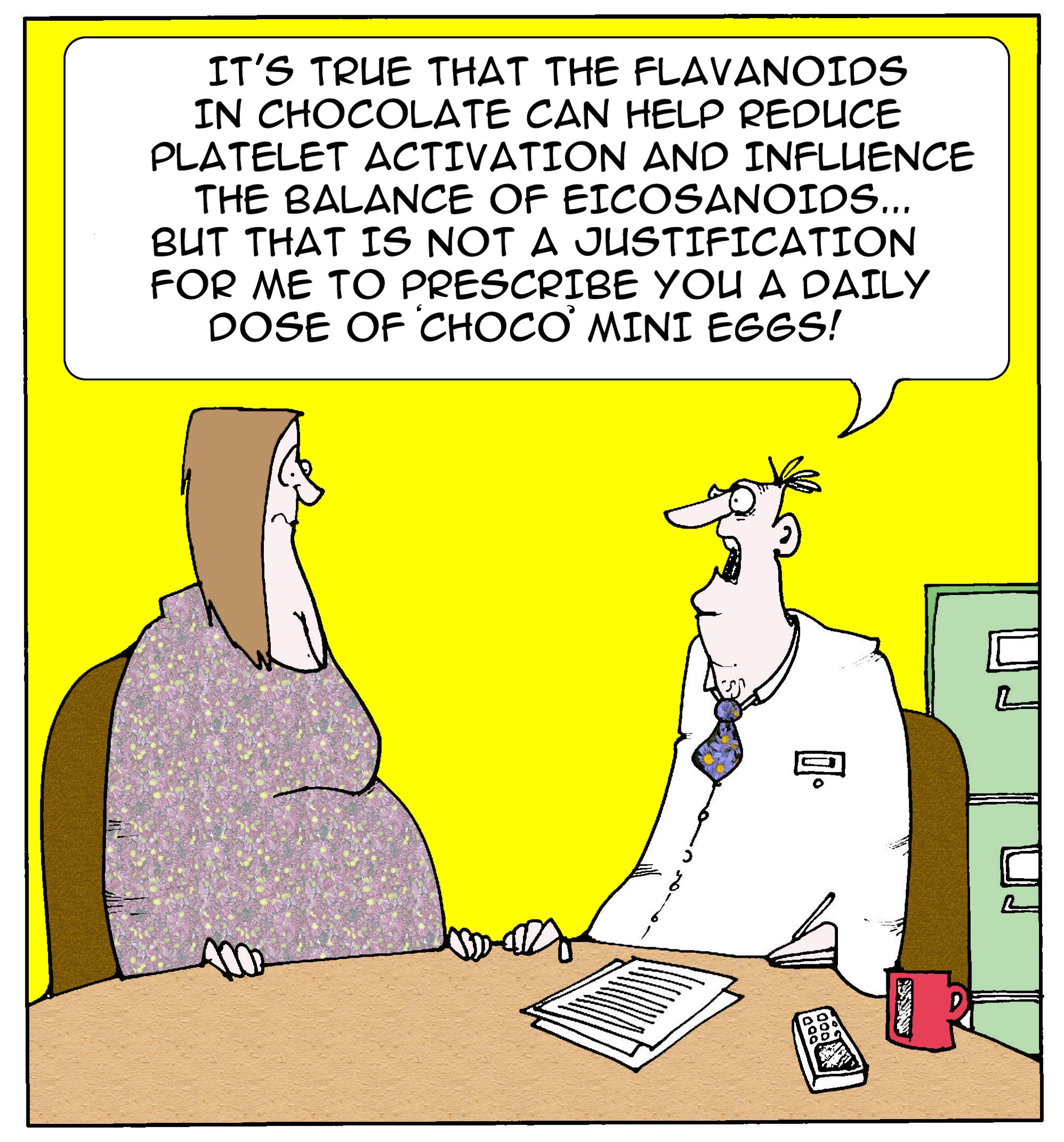Rage against the machine: menopause and irritability
Last week I posted an amusing video about menopausal rage and parking lots. But is uncontrollable irritability really so funny?
An estimated 50% of perimenopausal women report irritability as a major symptom and it tends to worsen the deeper you get into the ‘pause. Depending on how severe hormonal fluctuations, it’s n0t unusual to have excessive and seemingly out of proportion responses to even the most mundane of activities (such as waiting on line at the bank). A road paved with irritability is truly a rocky one and one that will certainly be less well traveled by those people we surround ourselves with. But, without knowing exactly why irritability is so pervasive, it’s difficult to figure out how to address it properly: are mood symptoms during menopause independently linked to hormonal imbalances? Or, are they secondary responses to vasomotor and other symptoms?
Interestingly, researchers took a look at this very question in a small study of 163 peri and postmenopausal women, asking them to complete an 18 question scientific questionnaire designed to measure temporary psychological states. Irritability directed towards others was characterized ‘outward,’ while irritability directed towards oneself was characterized as “inward.” The findings? It appeared that levels of follicle stimulating hormone (FSH) and leutenizing hormone (LH) were significantly linked to outward irritability but there didn’t appear to be any similar correlation to inward irritability. Moreover? Women going through menopause who suffered from chronic illness, e.g. high blood pressure, heart disease, diabetes or thyroid disease had significantly higher scores on both inward and outward irritability measures.
So, do FSH and LH levels directly influence mood and more specifically irritability? Researchers say that there is a relationship but that there is no direct association; in other words, declining or fluctuating hormones don’t directly cause outward irritability. Clearly, it possible that fluctuating hormones as they relate to overall menopause may be responsible, but we still don’t really know. And aging, at least as it relates to being increasingly vulnerable to chronic illness, also appears to play a role.
And there hasn’t been enough research done specifically on this topic to explain why. Meanwhile, as Whoopie Goldberg once said “I don’t have pet peeves. I have whole kennels of irritation.”
Where are your whole kennels? And what are you doing to reel in the irritability when it wants to rear its ugly head?
Read More
All the rage…menopausal women
I had hoped to go for the chocolate trifecta this week. But this video reminded me that I need to devote more time to laughing and less to the clinical side of this transition. While this is definitely a repost, it’s too good to pass up .
Happy Friday and Happy Weekend. Enjoy!
Read More
Wednesday Bubble: when it comes to chocolate, walk the walk
You know all that dark chocolate you started eating after Monday’s post about chocolate and heart disease? Well, ‘Wednesday’s child is full of woe,’ mainly because overconsumption of high energy food sources, like chocolate, can lead to slow weight gain over time.
Damned if you do and damned if you don’t, right?
Not so fast! I ran across an interesting piece the other day when researching chocolate. And researchers say that while chocolate is one of the most commonly craved foods because it can temporarily enhance moods and may even be considered addictive, exercise may be a way to counter the chocolate craving, especially in the workplace where snacking is used as a tool to counter boredom, fatigue and stress.
In this small study, researchers asked regular chocolate eaters (i.e. those who confessed to eating at least two chocolate bars a day) to abstain from eating chocolate for two days and then randomly participate in the following:
- 15 minutes of exercise (a brisk walk on a treadmill to the point but not exceeding breathlessness) and a low demanding computer task
- 15 minutes of exercise (as above) and a high demanding computer task
- Rest and a low demanding computer task
- Rest and a high demanding computer task
Now, here’s the rub. During the computer tasks, participants were seated next to a bowl of chocolates and informed that they could dig in as they wished (and, the bowl was weighed before and after so that the researchers could accurately determine how much chocolate was eaten). And, despite temptation, the participants who exercised ate half as much chocolate as those who didn’t. Yet, stress didn’t seem to counter the effect of exercise or the temptation to snack since both high and low demanding tasks resulted in pretty much the same level of chocolate consumption.
Although this is a very small study and only mimicked real life conditions, evidently, others have likewise shown that a brisk walk can temper chocolate cravings and that walking for as little as five minutes can counter an urge to snack. This is especially interesting when it comes to addictive foods like chocolate, since the compulsion component of addiction is such a strong driver of unhealthy behaviors.
The next time you’re at work and feel compelled to reach for the chocolate? Take a break and walk around the block. Save the chocolate for relaxing evenings at home. After all, home is where the heart is.
Read More
Loco for cocoa – chocolate and your heart
 Last June and August, I wrote about the link between eating chocolate and improving heart health. Briefly, researchers have long been interested in flavonoids and in particular (at least in so far as menopause goes) in isoflavones. (See soy posts for more on isoflavones). The specific compound or molecule of interest in cocoa (the non-fat component cocoa bean extract or liquor) are flavanols, which are also found in lower concentration in apricots, peaches, apples, green and black tea, red wine and cider). Note that the quantity of flavanols in chocolate depends on manufacturing, including fermentation and roasting, and how much treatment is given to reducing bitterness and improving consistency. What this means is that dark chocolate has the highest concentration of flavanols and milk, the lowest.
Last June and August, I wrote about the link between eating chocolate and improving heart health. Briefly, researchers have long been interested in flavonoids and in particular (at least in so far as menopause goes) in isoflavones. (See soy posts for more on isoflavones). The specific compound or molecule of interest in cocoa (the non-fat component cocoa bean extract or liquor) are flavanols, which are also found in lower concentration in apricots, peaches, apples, green and black tea, red wine and cider). Note that the quantity of flavanols in chocolate depends on manufacturing, including fermentation and roasting, and how much treatment is given to reducing bitterness and improving consistency. What this means is that dark chocolate has the highest concentration of flavanols and milk, the lowest.
What have researchers learned so far?
- Flavanols found in cocoa and cocoa powder may be powerful antioxidants and as such, help to mitigate certain factors that contribute to atherosclerosis, such as the formation of plaques in the arteries that lead to stroke and other coronary events. Thus, as antioxidants, they may actually neutralize toxic oxygen species circulating in the bloodstream.
- Experimental data suggest that ingestion of flavanols may help to regulate proteins and other compounds that encourage an inflammatory response to leads to heart disease.
- Flavanols may also help to stabilize the lining and muscular tone of the arteries and prevent them from narrowing.
- Additionally, flavanols may moderately protect against high blood pressures, although studies have been mixed.
- Finally, flavanols may help to maintain blood sugar levels and improve the ratio of good to bad fats in the blood.
However, while numerous studies suggest that chocolate may benefit the heart, less clear is whether or not a causal relationship exists. Still, the idea is attractive enough that researchers continue to delve into the potential benefits of functional foods containing flavonoids and in flavonols found in dark chocolate. This time, writing in the journal Appetite, they report on a newly published study that examined the effect of eating flavonoid-rich dark chocolate on a process called oxidative stress, in which the ratio of circulating oxygen free radicals to circulating antioxidants is imbalanced (free radicals are those nasty, unstable molecules or atoms that can wreak havoc and lead to disease, including heart disease, diabetes and high cholesterol).
Over a period of three weeks, 25 healthy men and women were asked to eat 50 g of dark chocolate daily. The women in this particular study were premenopausal, primarily because use of hormone replacement has been shown to modify oxidative stress that has been attributed specifically to LDL (low density lipoprotein, also known as the bad cholesterol). They also omitted any other cocoa products from their diet and tea, red wine and other drinks that were rich in antioxidants.
Not only did eating dark chocolate daily have no impact on body mass index or the subjects’ weight, but it significantly increased the percentage of HDL (high density lipoprotein or good cholesterol) and led to a significant declines in blood fats levels as well. Dark chocolate consumption also appeared to lower markers of oxidative stress and damage to good fats in cells by almost 27% in women in the study, indicating a favorable effect on LDL, a change that was not similarly observed in men. This suggests that eating dark chocolate could possibly benefit women more than men, at least in terms of the heart. And, while menopausal women were not studied, the researchers say that the protective role of dark chocolate could possibly be especially favorable during menopause, when waning levels of estrogen make women particularly sensitive to oxidative damage and heart disease.
As with similar studies, we still don’t have a definitive cause and effect. However, a little dark chocolate has the potential to go a very long way.
Read More
Sexual desire, age and a whole lotta debunking…
 I can’t tell you the number of times I’ve stumbled across studies or articles about sexual desire. She does, she doesn’t, he does, it doesn’t, take this pill, patch, supplement, eat this food, wear this article of clothing, blah blah blah. Guess what? A lot of it is in your head (or your environment). No really! At least if you are a woman. Granted, waning hormones, namely estrogen, will likely affect vaginal dryness, pliancy and libido, at least to a certain extent. But there is a whole body of literature that points to the importance of the value of, and satisfaction with, partner relationships.
I can’t tell you the number of times I’ve stumbled across studies or articles about sexual desire. She does, she doesn’t, he does, it doesn’t, take this pill, patch, supplement, eat this food, wear this article of clothing, blah blah blah. Guess what? A lot of it is in your head (or your environment). No really! At least if you are a woman. Granted, waning hormones, namely estrogen, will likely affect vaginal dryness, pliancy and libido, at least to a certain extent. But there is a whole body of literature that points to the importance of the value of, and satisfaction with, partner relationships.
I’ve been writing about sexual desire and sexual dysfunction since I started this blog four years ago. And I continue to be frustrated by the number of solutions and panaceas that overlook integral factors like emotions and intimacy. Consequently, I was truly happy to run across another piece of evidence demonstrating the importance of these factors. This time, researchers looked at a cohort of over 800 women who were as young as 40 and as old as 100 and asked them a number of questions about their emotional health, sexual activity and menopausal status. The results? 90% reported that they were in good health, and about half had had sexual activity within a month of being surveyed, with or without a partner. Notably, a large percentage of these women were using hormones.
However, while a third of women reported that they never or almost never felt sexual desire and a third reported having low sexual desire, most of the women who were sexually active indicated that emotional closeness with their partners was key and in fact, was associated with more frequent arousal, lubrication and orgasm. And, guess what? Although aging has often been thought to be a harbinger of low sexual satisfaction (or activity, for that matter), the percentage of women who reported being sexually satisfied actually increased with age, with about half of women older than 80 reporting that they were always or almost always satisfied! Moreover, these older women also had the same degree of orgasm satisfaction as their younger peers!
One of the study’s most important findings was the fact that sexual activity was not always the litmus for sexual satisfaction, and that emotional and physical closeness were almost equally if not more important. Indeed, lead researcher Dr. Susan Trompeter notes that women in the study “who were not sexually active may have achieved sexual satisfaction through touching, caressing or other intimacies developed over the course of a long relationship” adding that “emotional and physical closeness to the partner may be more important than experiencing orgasm.”
Clearly, this research highlights the need to focus on sexual satisfaction rather than sexual dysfunction or limitations to what is commonly perceived as sexual activity. By ignoring intimacy and partner relationships, we do a huge disservice to women. Moreover, it is certainly refreshing to know that it often gets better, not worse over time.
Read More








